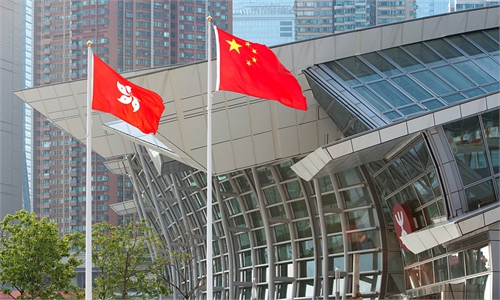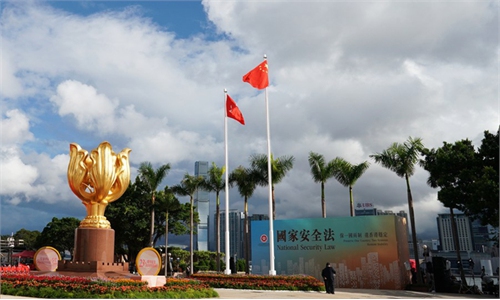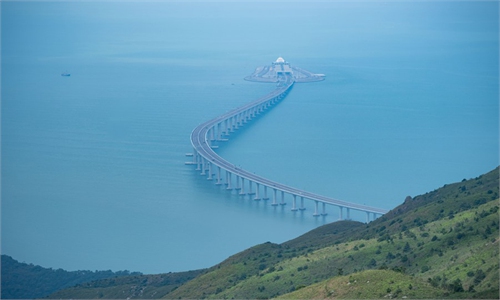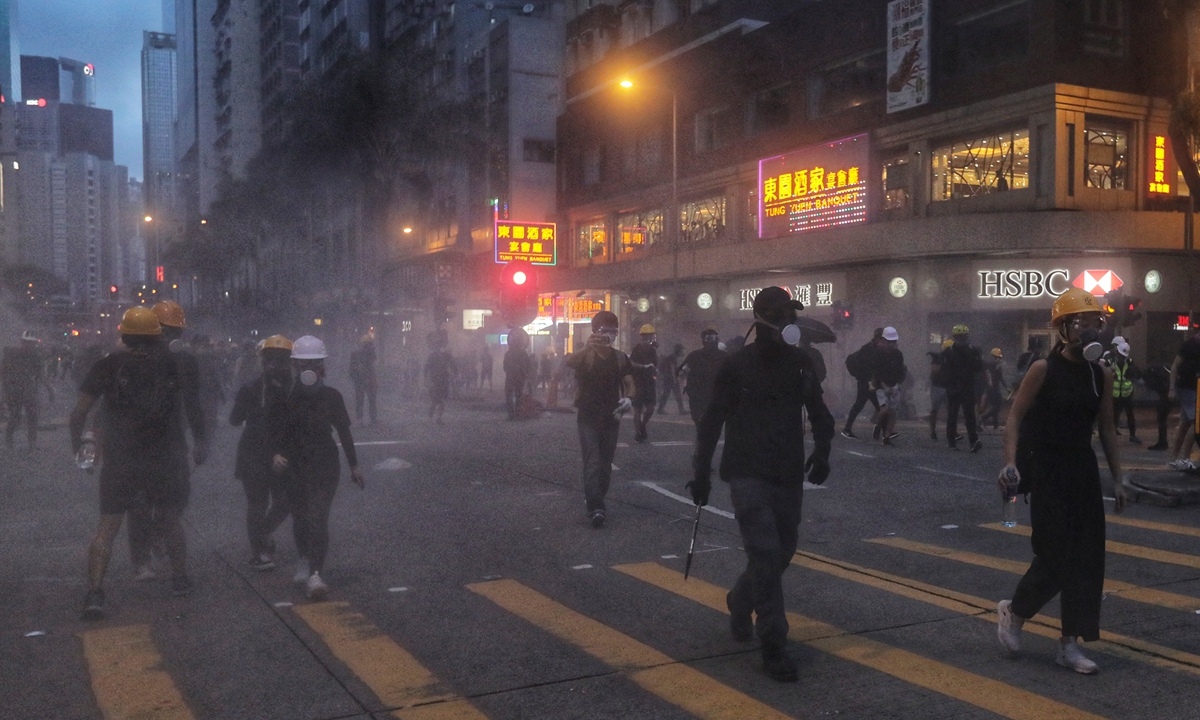
Hong Kong rioters wander on the street during the turmoil on August 11, 2019. They damaged public property and caused a great loss to the Hong Kong society. Photo: AFP
The social turmoil triggered by anti-government protests that turned into black-clad rioting activities in 2019 deprived Hong Kong people of security and happiness, making Hong Kong residents to reflect on what democracy really is, which should not be defined by the West-led public opinion, a Hong Kong-based columnist Chris Wat Wing-yin told the Global Times,.amid Western media's criticism of Hong Kong's recent electoral reform.
Is the so-called democracy by the Western countries the best for Hong Kong? After the social turmoil and the COVID-19 epidemic, I believe many people would expect good governance and good policies rather than so-called democracy, Wat noted.
"During the social turmoil in 2019, some Hong Kong people thought that was the period with most freedom and democracy, but we had no sense of security nor happiness during that period. This is the question on which we should make a deep reflection: Is the so-called democratic system the best in the world?" she asked.
The veteran Hong Kong-based columnist raised this question as some Western countries and media outlets continued portraying the central government's efforts in restoring the social stability for the city by introducing the national security law for Hong Kong in 2020 and the electoral reform in recent days as a decisive way of "crushing democracy" in the city. Like Wat, some local opinion leaders and scholars in Hong Kong urged that the local public opinion should not be led by the West anymore.
"The national security law for Hong Kong and the electoral reform are two strong medicines, which will completely reshape the political landscape of Hong Kong. However, the city is like a cancer patient and the medicines could help clean up the cancer cell, but for the city to become healthy, there's much work to do on the social, cultural and psychological aspects," she said.
Wat described the social turmoil in 2019 as a "collective hypnosis." After nearly two years, some people have already woken up after seeing what had happened. But some are still trapped "in the dream" or refuse to wake up.
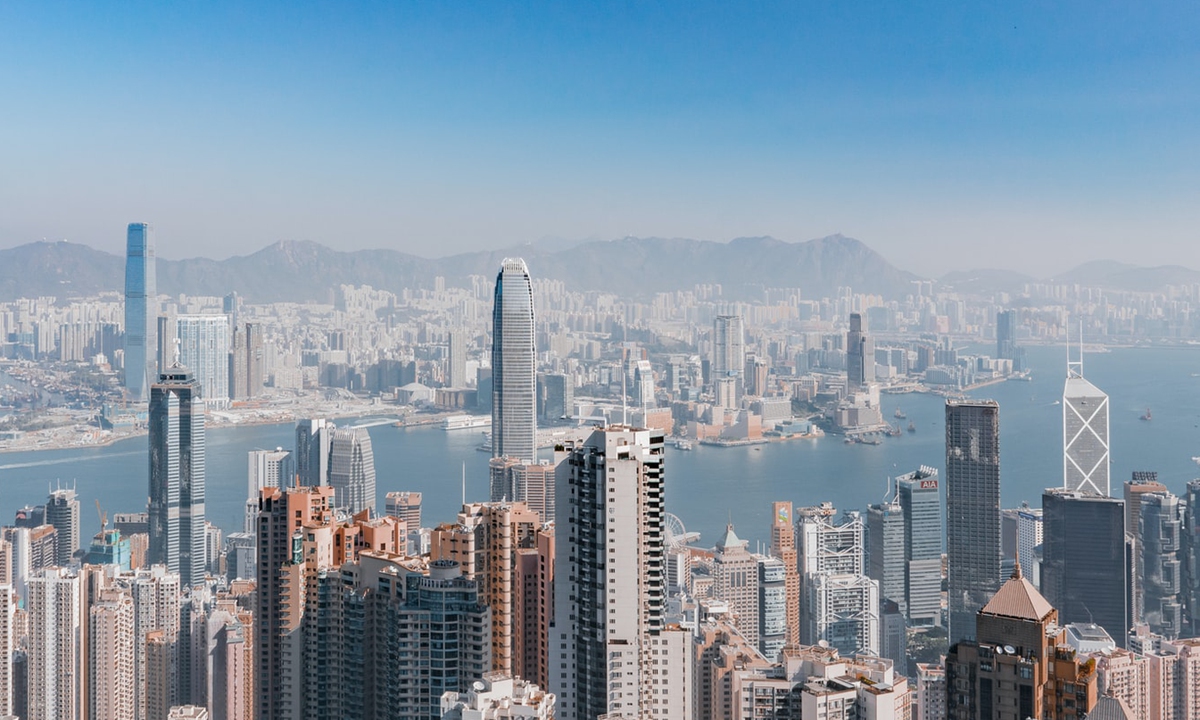
Hong Kong Photo: Unsplash
As experts and officials see the political reform as part of the solution to Hong Kong's malaise, the top legislature recently came up with a draft decision of improving the electoral system to fix the loopholes and to implement the principle of patriots governing Hong Kong. Xia Baolong, the senior Chinese official who oversees Hong Kong affairs, once talked about some bizarre situations in Hong Kong, including some people using their behavior of betraying their own country as "political assets", demonizing their own nationality and the central government during campaign activities, or staging an ugly political farce when they take the oath of office.
Behind such a twisted mentality, there are historical reasons, according to Wat. During the colonial era, British education had played down Hong Kong people's sense of national identity, and after the city returned to the motherland, some social elites with their values shaped in the colonial years always asked the same question to many Hong Kong people: Are you Chinese or Hong Kong people?
"This is like every morning, when you, a woman, wake up, someone asks you, are you a woman? You need to think about it carefully, am I a woman?… and when this question was repeatedly asked, maybe one day, you'll have some doubts about who you really are," Wat said, referring to many Hong Kong people, who have been educated in such a bizarre environment since childhood, share the same vague and confusing ideas about their national identity.
"In many places around the world, when people are asked about their citizenship, they would say they are Chinese, Japanese or American… only in Hong Kong, some people will say, we are Hong Kong people of China," she said.
Such elite-led "brainwashing" over more than 20 years should be changed, and after the political reform, Hong Kong society needs cultural, social and psychological restructuring in a complete manner, the columnist said.
"The return to the motherland should also mean the people's hearts have returned, but on this aspect, there's much to be done," Wat noted.
Besides political reforms, Hong Kong needs to start an overhaul in other areas such as education and media to form a correct sense of national identity and enhance people's understanding about the mainland, which is a very urgent task, the Hong Kong-based columnist said.

